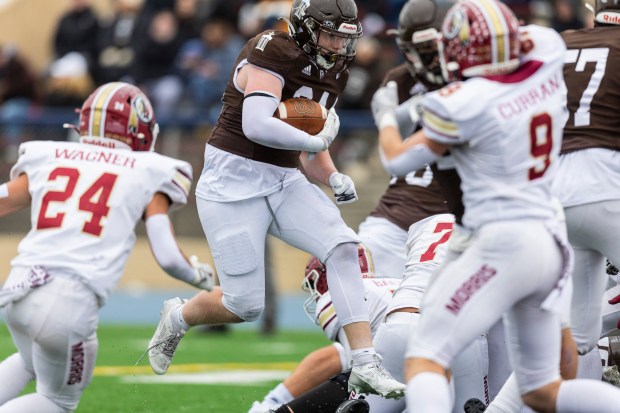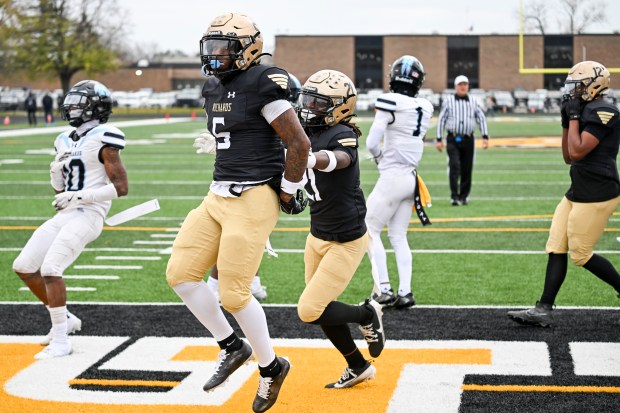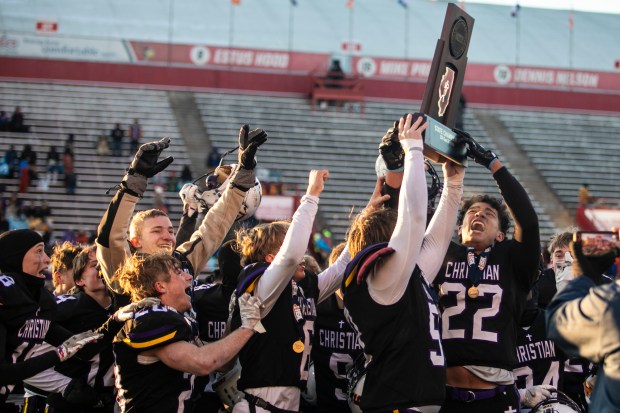Back in November, I wrote that something needed to be done about the Illinois High School Association’s multiplier-waiver process.
In March, the IHSA board answered the call, announcing some major changes when it comes to multiplier waivers as well as the success factor.
The waivers were originally intended to prevent struggling private and non-boundaried school programs from having to compete in a larger class in the postseason, where they would be overmatched.
However, the waivers became much too easy to receive. This was particularly an issue in football, where teams needed to win three playoff games over a two-year period to not qualify for a waiver.
Additionally, the two-year periods were fixed. So, if 2021-22 was one period and 2023-24 was another, a team could win three or more playoff games between the 2022-23 seasons without losing the waiver.
This all came to a head on Thanksgiving weekend when seven of the eight football state champions were private schools.
Every team that won a title on that Friday — Belleville Althoff in Class 1A, Chicago Christian in 2A, Montini in 3A and DePaul Prep in 4A — was using the multiplier waiver.
So, what is changing?
Beginning with the 2025-26 school year, non-boundaried school programs will be subjected to the usual 1.65 enrollment multiplier unless they apply and are granted a waiver.
In order to qualify to apply for a waiver, a program must not achieve a certain level of success over a three-year period.
For football, one playoff win over a three-year period eliminates you from waiver consideration. In most other sports, reaching a sectional final disqualifies a program from applying.
Even programs that qualify to apply for a waiver aren’t guaranteed to get it. The IHSA board will review each application on a case-by-case basis with the school’s name removed and then vote to approve or deny the waiver.
Chicago Christian’s football team was set to lose its waiver under the old format anyway, but this move could affect the program in the future.
Nonetheless, Knights coach CJ Cesario said he understood the IHSA board’s thinking.
“I think the IHSA did as good as they could in considering all items,” Cesario said. “There will never be a perfect model, but I believe this is fair.”
This will prevent some situations that just seemed totally off. Montini playing football in Class 3A, for example, felt wrong.
Without this rule change, Brother Rice — had the Crusaders accepted a waiver they would have been eligible for — may have been in the 5A football playoffs this fall.
Does that sound right to anyone?
The IHSA board also made a change to its success-factor policy. Any non-boundaried school program that wins two state trophies over a three-year period will be moved up a class.

In football, the success factor will cause Mount Carmel to move up to 8A and Joliet Catholic to 6A next season, moves that were already set to happen under the old format.
While these changes will impact all sports to varying degrees, we know this was largely a football-driven move.
So, what do football coaches at Southland public schools think?
Richards coach Tony Sheehan gave his approval.
“I think the changes will help,” Sheehan said. “I believe that (non-boundaried schools) all should be up playing in 6A or above.
“I agree with the success factor as well. There even should be one for public schools.”
I agree with Sheehan on that last point. If a public school program is dominating a sport at a lower class, there’s no reason they should not be moved up via the success factor.
Embrace the challenge.

One concern I’ve heard expressed about the changes is that 7A and 8A will become overrun with private schools.
But new Homewood-Flossmoor coach Troy McAllister, who moved over from Sandburg after winning state title at Phillips, said schools in those classes should be ready for the competition.
“Obviously, a perfect system does not exist,” McAllister said. “If you are in 7A and 8A, you should be expecting to play the best teams in state regardless of private or public.”
McAllister and Sheehan both said they do not want to see public and private schools compete in separate classes.
I’m with them. And that’s why I’m in favor of these changes.
It’s not about punishing private schools. It’s about making small adjustments to prevent the outcry for a total overhaul.
Because I sure want to see Mount Carmel and Lincoln-Way East battle in a playoff football game. I wouldn’t want to miss a potential postseason showdown in baseball between crosstown foes Lincoln-Way West and Providence, currently the top two teams in the Daily Southtown’s rankings.
Let’s see how these changes affect things over the next few years. But if they quiet the screams for public-private separation, that’s a win.



